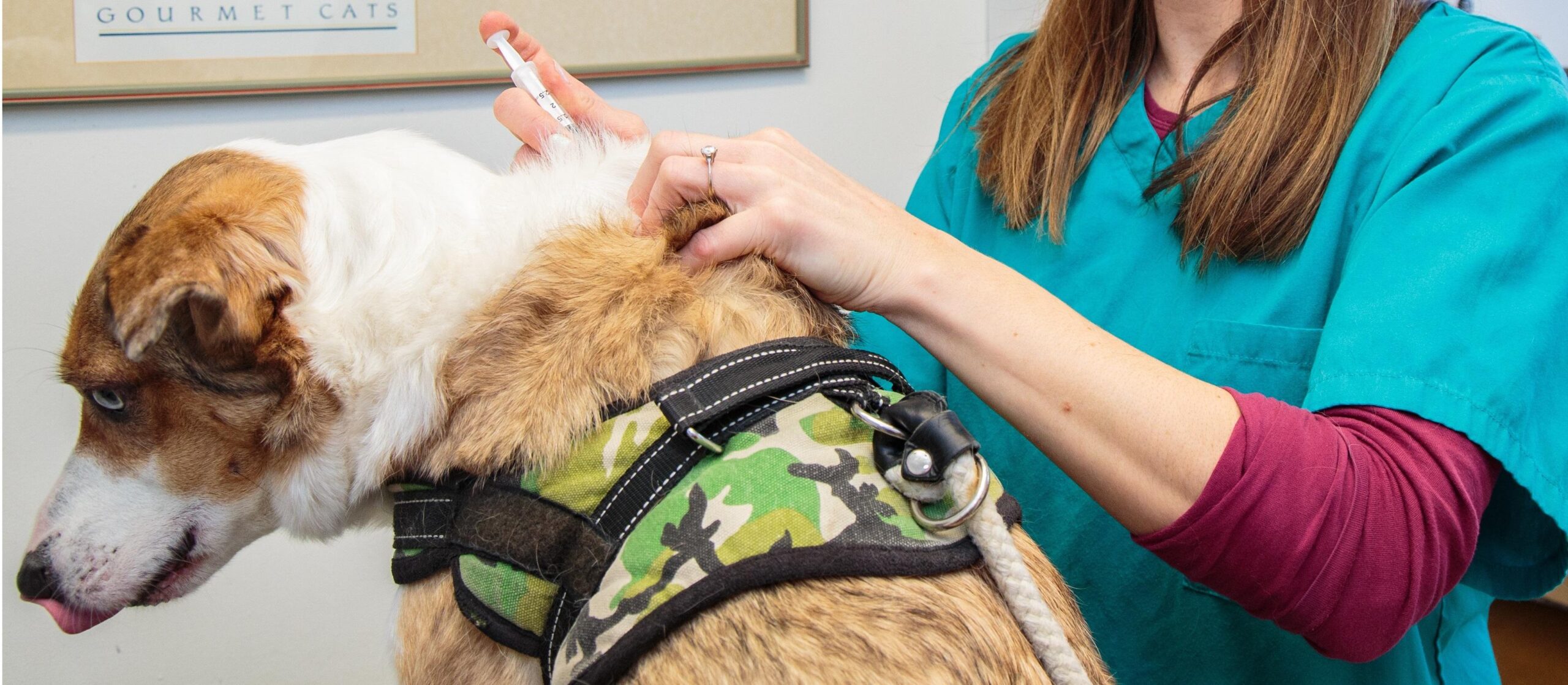As a responsible pet owner, it is vital that you make sure your dogs, cats, rabbits and other small animals are protected and kept safe from life-threatening illnesses by keeping up to date with their vaccinations.
Unless pets are vaccinated regularly, there is always the risk of an outbreak of infectious diseases in the wider community, which in severe cases can prove fatal. Some conditions can be transferred to humans.
When animals are born they are usually protected from infections by their mother’s milk, providing she has been regularly vaccinated. However, this protection only lasts a few weeks, so they need regular vaccinations from an early age.
For advice come to us and we will give you all the information you need to keep your pet happy and healthy.


